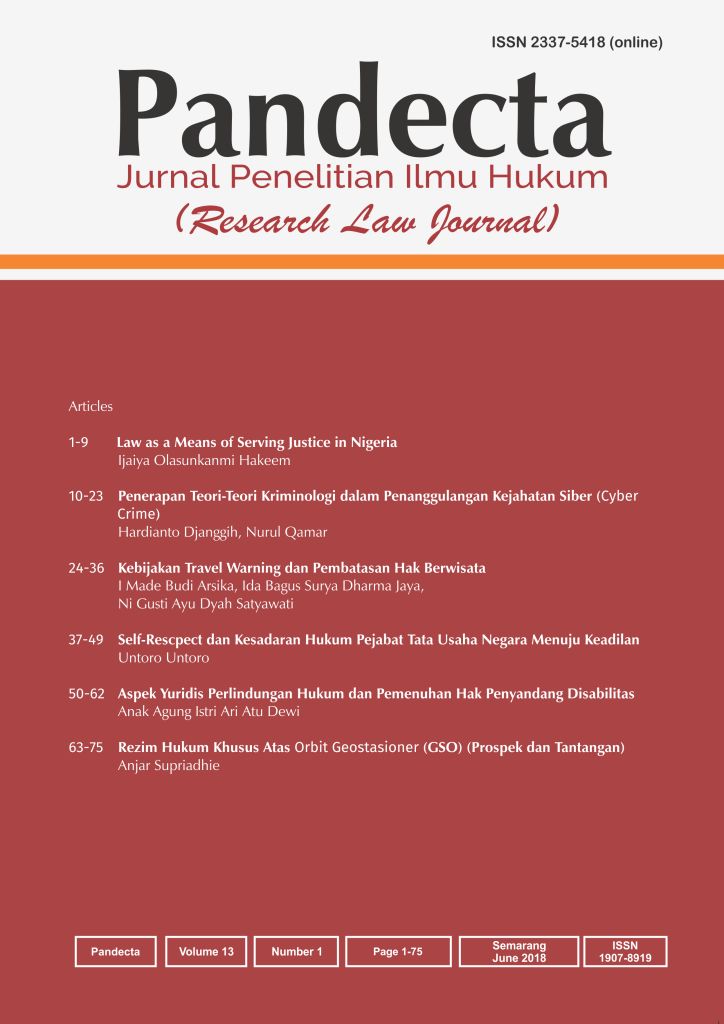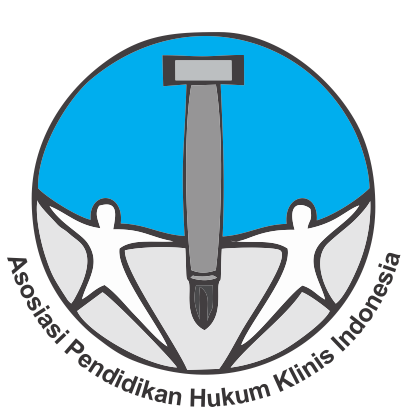Implementation of Sharia Compliance to Optimize Zakat Governance in the Frontier and Outermost Regions in Indonesia
(1) Faculty of Law, Universitas Indonesia, Indonesia
(2) Faculty of Law Universitas Indonesia
Abstract
This research is a juridical and empirical study about the implementation of sharia compliance based on Law no. 23 the year 2011 on the Management of Zakat. BAZNAS, as the zakat management authority under the government, must implement good governance based on Islamic Sharia principles, trustworthiness, benefit, justice, legal certainty, integrated and accountability as a mandate from the zakat regulation. Sharia compliance is the main aspect in the management of zakat which consists the rules and the principles of sharia are essentially listed in the Qur’an, Hadith and developed in zakat fiqh related to principles of collecting and management of zakat, such as subject dan object of zakat, nisab and haul and the utilization and empowerment of zakat property. This study discusses the regulatory aspects of sharia compliance in the management of zakat, sharia principle in the operation of zakat, the stakeholders, indicators, reporting and auditing systems, and the benefits of implementing sharia compliance in zakat management. The research field was conducted in six ProvinceS in Indonesia (Aceh, West Nusa Tenggara, East Kalimantan Province, East Nusa Tenggara, North Sulawesi, Gorontalo). The implementation of sharia compliance in zakat institutions began to be effective in 2018 after the Decree of the Ministry of Religious Affairs Number 733 in 2018 concerning sharia audit guidelines for zakat management reports. The implementation of sharia compliance has a positive correlation with the implementation of good governance in the management of zakat institutions because it is associated with increased accountability and responsibility of zakat institutions. Sharia compliance is a strategic issue in achieving best practices in the management of zakat institutions, especially in ensuring legal certainty and trust in the community to optimize the empowerment of zakat in Indonesia.
Keywords
Full Text:
PDFReferences
Al-Qardawi, Y. (1993). Fiqhuz Zakat. Jakarta: Litera Antar Nusa.
Amalia, E. (2017). “The Shariah Governance Framework for Strengthening Zakat Management in Indonesia: a Critical Review of Zakat Regulationsâ€. Advance in Social Science, Education and Humanities Research Vol. 162, 133-138.
Atiqah and Yusro Rahma, (2018). “Islamic Corporate Governance and Islamic Social Responsibility Towards Maqashid Shariah." International Conference on Islamic Finance, Economics, and Business, and Social Sciences, pages 70–87. DOI 10.18502/kss.v3i8.2501.
Hakim, Cecep M. et al. (2019). "Designing Shariah Governance Standard for Zakat Management Organization: Indonesia Experience." Puskas Working Paper Series Baznas 2019 https://www.iconzbaznas.com/publications/index.php/pwps/article/view/97/70
Fahm, Abdul Gafar O (2018). Beyond Good Practices and Standards: An Islamic Framework of Sustainable Business Practices for Corporate Organisation. Islamic Economic Studies Vol. 25, No.3http://www.irti.org/English/Research/Documents/IES/235.pdf
Firdaus, Muhammad et al (2012). "Economics Estimation and Determinations of Zakat Potential in Indonesia," IRTI Working Paper No 1433-07, Jeddah: IRTI 2012. http://www.irti.org/English/Research/Documents/WP/WP-1433-07.pdf
IFSB. (2009). Guiding Principles on Sharia Governance Systems for Institutions Offering Islamic financial services. Kuala Lumpur: Islamic Financial Service Board.
Johari, Fuadah; Ab Aziz, Muhammad Ridhwan; and Mohd Ali, Ahmad Fahme (2014)."A Review On Literatures Of Zakat Between 2003-2013â€. Library Philosophy And Practice (E-Journal). 1175. http://digitalcommons.unl.edu/libphilprac/1175
Merryman, John Henry (1985). “The Civil Law Tradition: An Introduction to the Legal Systems of Western Europe and Latin America,†2nd ed., Stanford: Stanford University Press.
Triyani N, Beik IS, Baga LM( 2017). “Risk Management at Badan Amil Zakat Nasional (BAZNAS)â€. Jurnal Al-Muzara’ah Vol. 5 No. 2, 2017 p 107
Meutia Inten and Devi Febtianti (2017). Islamic Social Reporting in Islamic Banking: Stakeholders' Theory Perspective. SHS Web of Conferences, 34, 73412001. https://doi.org/10.1051/shsconf/ 20173412001
Chapra M. Umer and Habib, Ahmed (2002). Corporate Governance In Islamic Financial Institutions, Islamic Development Bank, 2002 King Fahad National Cataloging-in-Publication Data.
Khalid, Azam Abdel Hakeem (2018) The Role Of Shariah Supervisory Board On Internal Shariah Audit Effectiveness: Evidence From Bahrain, Academy Of Accounting And Financial Studies Journal Volume 22, Issue 5, 2018.
Sultan, Syed Alwi Mohammed (2007) A Mini Guide to Shari'ah Audit for Islamic Financial Institutions - A Primer, Cert Publications ISBN: 9834278578
Baznas (2014) Towards an Establishment of an Efficient and Sound Zakat System: Proposed Core Principles for Effective Zakat Supervision, Presented in the Working Group of Zakat Core Principles 2014. http://www.zakat-chamber.gov.sd/english/files/zakah_core_principles.pdf
Baznas (2019). â€Internal Audit Standard for Zakat Management Organization, OFFICIAL NEWS BAZNAS Center of Strategic Studies 2019, No.4/ON/02/2019, 20 February2019https://www.iconzbaznas.com/publications/index.php/on/article/view/94/66
Baznas (2017). “Outlook Zakat Indonesia 2017â€. Jakarta, The National Zakat Board (BAZNAS) https://www.puskasbaznas.com/images/outlook/OUTLOOK_ZAKAT_2017_PUSKASBAZNAS.pdf
Baznas (2018). Baznas Award 2018 Assessment. Baznas East Kalimantan Province.
Ministry Of Religious Affairs, East Kalimantan Province ( 2017). Sharia Supervision Report On Zakat Management Organization 2017, Ministry of Religious Affairs East Kalimantan. Kemenag RI.
Ministry Of Religious Affairs (2018). Decree Number 733 in 2018 concerning Sharia audit guidelines for reports on the implementation of zakat, infaq, charity, and other religious, social funds. Kemenag RI.
Ministry Of Religious Affairs (2018). “Technical Guidelines for General Supervision of Zakat Institutions in 2017â€. Kemenag RI
In-depth Interview with Aniek Prasmeswati (Ministry Of Religious Affairs of East Kalimantan Province), 6 September 2018
In-depth Interview with Fachrul Ghazi (Baznas East Kalimantan Province), 7 September 2018
Refbacks
- There are currently no refbacks.


